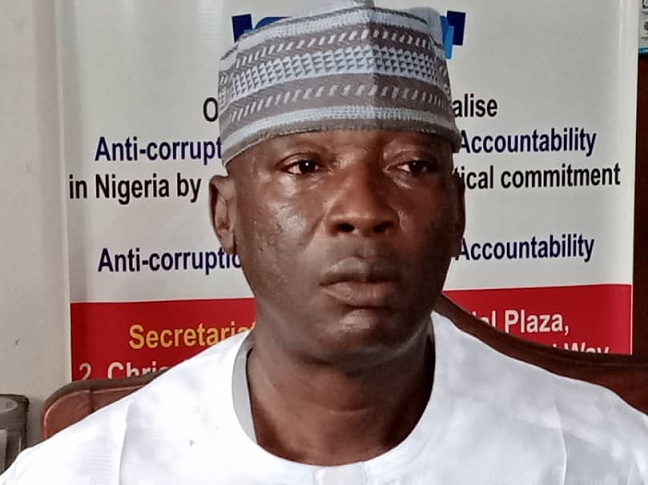By Ozumi Abdul.
This morning, while casually browsing through my Facebook feed, I stumbled upon a post made by Kogi State Commissioner for Information, Kingsley Femi Fanwo. In his post, Honorable Fanwo attempted to justify the payment of salaries to civil servants in Kogi State as an “achievement” of the present administration.
I paused for a moment, read it again, and shook my head in disbelief. For a man who occupies the exalted position of image maker of a state government, such a post was not only a professional misstep but also an unfortunate blunder in public communication.
For context, here is what Fanwo wrote:
“They said the payment of salaries is not an achievement. I agree. No questions. But when it is not paid, it becomes a failure. Isn’t it?
“Government resources have competing pressures. Education is there, healthcare is there, roads are there, agriculture is there, youth and women empowerment is there, security is there, housing and Urban development too and many others across all the sectors.
“The magic of the Kogi State Government to still meet all of these needs and still pay salaries should be commended. Mr President has made more resources available to the States through his economic reforms. Bold, courageous, and commendable.
“But the Governor and his Accountant General have ensured financial engineering. Road projects everywhere. Projects on virtually all the campuses. Model Secondary Schools are being constructed. Security architecture is being funded heavily to keep our people safe. This is commendable.
“Thank you Mr Governor. Thank you Mama Alert, the indefatigable Accountant General of our dear state, Dr. Habibat Onumoko. You have shown that you truly love this state. Keep it up AG.”
At first glance, Fanwo’s words seem well-meaning. But beneath the rhetoric lies a deep misconception that exposes poor understanding of governance communication and a flawed attempt at political spin. To portray the prompt payment of workers’ salaries as an “achievement” is a classic example of poor and counterproductive public relations.
Let’s be clear: payment of salaries is not an achievement. It is an obligation.
A responsible government pays its workers as and when due, not as an act of benevolence, but as a matter of statutory and moral duty. Governor Usman Ododo, being a responsible leader, has simply chosen to do what the law and ethics of governance demand. This is commendable in the sense of responsibility, but not laudable as a developmental milestone.
To celebrate it as an “achievement” is to set a dangerously low bar for governance and to insult the intelligence of the working population whose sweat and labour sustain the state machinery.
It is a poor and pauper-stricken thought for anyone to think that the prompt payment of civil servants’ salaries by a government is an achievement. Workers earn their pay through their service. Salaries are rights guaranteed by law, not favours dispensed by magnanimous governors.
Under international labour standards, specifically Article 23(3) of the Universal Declaration of Human Rights (1948), it is clearly stated that “Everyone who works has the right to just and favourable remuneration ensuring for himself and his family an existence worthy of human dignity.” This provision makes salary payment a matter of right and justice, not benevolence.
Similarly, the International Labour Organization (ILO) Convention No. 95 (Protection of Wages Convention, 1949) mandates employers, including governments, to pay wages regularly and in full. The obligation is binding on all member states, including Nigeria.
At the national level, the Nigerian Labour Act (Cap L1, Laws of the Federation of Nigeria, 2004) explicitly provides under Section 15(1) that “Wages shall become due and payable at the end of each period for which the contract is expressed to subsist.” In simple terms, the law expects that every employer,whether private or public , pays workers promptly at the end of each month.
Also, Kogi State’s Public Service Rules reinforce this, mandating that government employees receive their lawful entitlements as and when due. Nowhere in these laws is salary payment described as a government favour or an “achievement.”
Governor Usman Ododo’s administration has indeed initiated and continued several development-related projects across the state, road rehabilitation, construction of model secondary schools, support for security architecture, and expansion of infrastructure across tertiary institutions. These are tangible, measurable, and impactful indicators of achievement.
Those are the milestones that define success in governance.
Not the routine act of paying salaries.
By reducing the conversation to “we pay salaries promptly,” the Commissioner unwittingly diminishes the more profound developmental efforts of the administration. It is poor strategic communication, and a self-inflicted dent on the government’s image.
A good communicator would have emphasized service delivery, infrastructure expansion, social investment, agricultural development, and security improvement, not salary payment.
In a state that has suffered years of salary arrears and irregular and percentage payments in the past, it is understandable that the people are relieved to see some consistency. But turning that into a PR campaign slogan is, frankly, an insult to both the government and the civil servants.
Mr Fanwo must also remember that Kogi’s recent political history holds painful lessons. Governor Ododo cannot afford to repeat the public relations mistakes of his predecessor, Alhaji Yahaya Bello.
Despite Bello’s undeniable infrastructural footprint,which, in fairness, stands toe to toe with the achievements of late Prince Abubakar Audu, his administration’s legacy suffered heavy public backlash because of salary controversies. The failure to handle workers’ welfare with empathy and transparency attracted harsh media profiling that still haunts his image today. Many still refer to him with unflattering names like “thief” and “dictator”, not necessarily because of corruption convictions, but because of perceived insensitivity to workers’ welfare.
Governor Ododo, by contrast, started on a cleaner slate. He is young, focused, and determined to rebuild trust between government and the people. To associate his name with a misleading claim that “salary payment is an achievement” is a reckless PR error that could erode that goodwill.
The Kogi State government must also look beyond its borders. Across Nigeria, many states, especially in the North-West and South-West consider prompt salary payment a routine responsibility, not a trophy to flaunt.
States like Lagos, Oyo, and Rivers have long normalized the practice of paying civil servants promptly, even while executing massive infrastructural and social projects.
In those states, no commissioner would dare list “we pay salaries” as an accomplishment. It is understood that the very foundation of governance rests on the ability to meet obligations to workers.
Even in the North-Central region, a few states have risen above that mindset, recognizing that prompt salary payment is a constitutional duty. Kogi must not remain trapped in the cycle of celebrating the ordinary.
Let’s be honest, failure to pay salaries promptly is not only a sign of administrative incompetence; it is a woeful failure that reeks of irresponsibility. It cripples productivity, fuels corruption, and breeds resentment. When governments pay salaries late, they are not saving money — they are losing legitimacy.
Therefore, Ododo’s decision to pay salaries promptly deserves acknowledgment for responsibility, not celebration for achievement. The distinction matters, especially in a democracy where accountability and communication shape public perception.
Commissioner Fanwo must understand that his role as image maker goes beyond flattery. Strategic communication is about aligning government messaging with reality, reinforcing public trust, and protecting the brand of the administration.
Public relations is not about sycophancy. It is about credibility.
Every time a spokesperson misrepresents responsibility as achievement, the government loses moral capital.
The Ododo administration must ensure that its communication strategy reflects maturity, transparency, and sensitivity. The governor’s performance should speak through visible projects, economic reforms, and governance integrity, not through exaggerated praise for meeting basic obligations.
– Ozumi Abdul is a senior correspondent at PRNigeria and strategic communication expert. He can be reached via abdulozumi83@gmail.com




